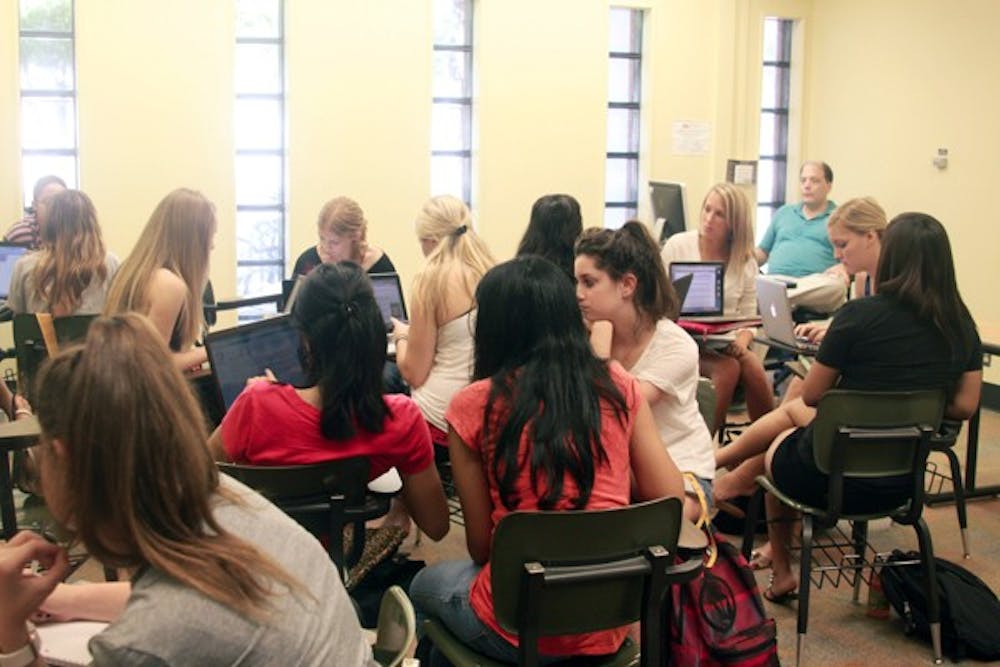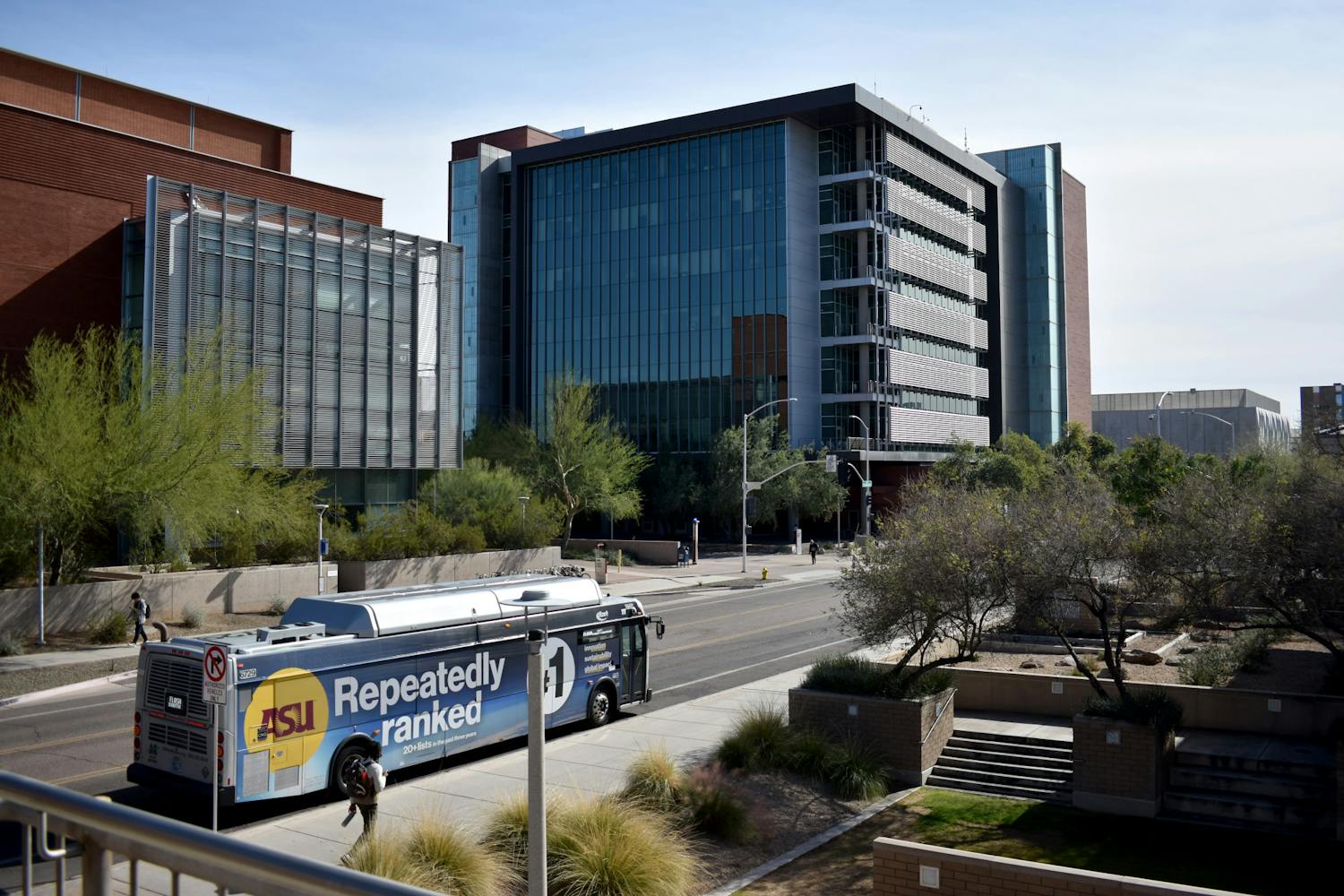A new project from the Mary Lou Fulton Teachers College is helping future elementary school teachers learn how to teach a variety of topics, giving them the skills to jump from subject to subject.
Professors working with the Teaching Foundations Project are constructing new courses in the areas of mathematics, art, science, social studies and English to help future teachers understand the fundamentals of each subject. For example, a social studies course would teach students about the U.S. Constitution and Arizona history in such a way that they can effectively relay the information to elementary school students.
“The stereotype is that you only have to be a little smarter than the kids, and we’re saying no, you have to really understand big ideas,” program director Laura Turchi said.
Forty new courses have been developed. Beginning this semester, each course will be piloted 10 times before becoming officially implemented.
The goal is to make each course an undergraduate requirement, Turchi said.
“The slogan of the project (is) ‘great learners make great teachers,’” she said.
Turchi said it’s the foundation of being a learner that translates into being a better teacher.
“You want to be pretty confident about your own skills and ways of learning so you can then turn it around and be attentive to learners,” she said — that way you can make these ideas come alive.
The other goal of the project is to increase the partnership between Arizona universities and community colleges.
“Partnership is really the whole foundation to the success of this grant,” said Hilary Misner, executive director of college-partner grants for the Mary Lou Fulton Teachers College.
Improving test scores and student performance starts with preparing teachers, Misner said.
Geography professor Ron Dorn is one of the professors who helped create the social studies courses. The courses were constructed around the idea of “flipping the classroom,” Dorn said.
“Why should you come to a classroom, physically, to listen to a lecture?” he said. “That’s so 19th century.”
When a classroom is “flipped,” the core knowledge is online in the form of lectures and in-class time is devoted to discussion and further understanding, Dorn said.
Dorn and his colleagues recorded experts in the fields of history, geography, economics and civics for the online lectures. But in class, the instructor can tailor the course to his or her teaching style, he said.
“This provides uniformity but doesn’t chop out the creativity of the instructor,” Dorn said.
The lectures are public domain and will be accessible through a link on the Mary Lou Fulton Teachers College website.
Education professor Barbara Kinach has been working on the mathematics courses.
“One thing this project is trying to do is give people who are studying to be teachers a better understanding of the reasons behind the math,” Kinach said.
With the addition of the Teaching Foundations Project courses, the number of required mathematics courses will increase from three to five, she said. Some of these classes will be offered at community colleges across Arizona.
“This way (students will) come into ASU (and) everybody will be on the same page,” Kinach said.
She said the new courses are attempting to make mathematics more exciting and relevant. Emphasizing technology and hands-on activities are both aspects of these new courses.
The classes also teach future educators about the different applications of mathematics.
“If we train a whole generation of elementary and middle school teachers with this idea of the applications of math, they’ll be able to convey that to their students,” Kinach said.
Reach the reporter at ryan.mccullough@asu.edu
Click here to subscribe to the daily State Press newsletter.





